-
EXECUTIVE SUMMARY
-
Market Overview
-
Key Findings
-
Market Segmentation
-
Competitive Landscape
-
Challenges and Opportunities
-
Future Outlook
-
MARKET INTRODUCTION
-
Definition
-
Scope of the study
- Research Objective
- Assumption
- Limitations
-
RESEARCH METHODOLOGY
-
Overview
-
Data Mining
-
3.3.
-
Secondary Research
-
Primary Research
- Primary Interviews and
- Breakdown of Primary Respondents
-
Information Gathering Process
-
Forecasting Model
-
Market Size Estimation
- Bottom-Up
- Top-Down Approach
-
Approach
-
Data Triangulation
-
3.8.
-
Validation
-
MARKET DYNAMICS
-
Overview
-
4.2.
-
Drivers
-
Restraints
-
Opportunities
-
MARKET FACTOR ANALYSIS
-
Value chain Analysis
-
Porter''s Five Forces Analysis
- Bargaining Power of Buyers
- Threat of Substitutes
- Intensity
-
5.2.1.
-
Bargaining Power of Suppliers
-
5.2.3.
-
Threat of New Entrants
-
of Rivalry
-
COVID-19 Impact Analysis
- Market Impact Analysis
- Regional Impact
- Opportunity and Threat Analysis
-
AUTOMOTIVE FUEL CELL MARKET, BY TECHNOLOGY (USD BILLION)
-
6.1.
-
Proton Exchange Membrane Fuel Cells
-
Phosphoric Acid Fuel Cells
-
6.3.
-
Solid Oxide Fuel Cells
-
Alkaline Fuel Cells
-
AUTOMOTIVE FUEL CELL
-
MARKET, BY APPLICATION (USD BILLION)
-
Passenger Vehicles
-
Commercial
-
Vehicles
-
Buses
-
Trucks
-
AUTOMOTIVE FUEL CELL MARKET,
-
BY FUEL TYPE (USD BILLION)
-
Hydrogen
-
Natural Gas
-
8.3.
-
Methanol
-
Biogas
-
AUTOMOTIVE FUEL CELL MARKET, BY STORAGE TYPE
-
(USD BILLION)
-
Compressed Hydrogen
-
Liquid Hydrogen
-
9.3.
-
Hydrogen Carrier
-
AUTOMOTIVE FUEL CELL MARKET, BY REGIONAL (USD BILLION)
-
North America
- US
- Canada
-
Europe
- Germany
- UK
- France
- Russia
- Italy
- Spain
- Rest of Europe
- China
- India
- Japan
- South
- Malaysia
- Thailand
- Indonesia
- Rest of APAC
-
10.3.
-
APAC
-
Korea
-
South America
- Brazil
- Argentina
- Rest of South America
-
10.4.2.
-
Mexico
-
MEA
- GCC Countries
- South Africa
- Rest of MEA
-
COMPETITIVE LANDSCAPE
-
Overview
-
11.2.
-
Competitive Analysis
-
Market share Analysis
-
Major Growth
-
Strategy in the Automotive Fuel Cell Market
-
Competitive Benchmarking
-
Leading Players in Terms of Number of Developments in the Automotive
-
Fuel Cell Market
-
Key developments and growth strategies
- Merger & Acquisitions
- Joint Ventures
-
11.7.1.
-
New Product Launch/Service Deployment
-
Major Players Financial Matrix
- Major Players R&D Expenditure. 2023
-
11.8.1.
-
Sales and Operating Income
-
COMPANY PROFILES
-
Bloom Energy
- Financial Overview
- Products Offered
- Key Developments
- SWOT
- Key Strategies
-
Analysis
-
PowerCell Sweden
- Products Offered
- Key Developments
- SWOT Analysis
- Key Strategies
-
12.2.1.
-
Financial Overview
-
Honda
- Products Offered
- Key Developments
- SWOT Analysis
- Key Strategies
-
12.3.1.
-
Financial Overview
-
Toyota
- Financial Overview
- Products Offered
- Key Developments
- SWOT Analysis
- Key Strategies
-
MercedesBenz
- Financial Overview
- Products Offered
- Key
- SWOT Analysis
- Key Strategies
- Financial Overview
- Products Offered
- SWOT Analysis
- Key Strategies
- Financial Overview
- Products Offered
- SWOT Analysis
- Key Strategies
- Financial Overview
- Products Offered
- Key Developments
- SWOT Analysis
- Key Strategies
-
Developments
-
12.6.
-
Cummins
-
12.6.3.
-
Key Developments
-
12.7.
-
Hyundai
-
12.7.3.
-
Key Developments
-
12.8.
-
FuelCell Energy
-
Plug Power
- Financial Overview
- Products Offered
- Key Developments
- SWOT Analysis
- Key Strategies
-
Ballard Power Systems
- Financial Overview
- Key Developments
- SWOT Analysis
- Key Strategies
-
12.10.2.
-
Products Offered
-
General Motors
- Financial Overview
- Products Offered
- Key Developments
- SWOT
- Key Strategies
-
Analysis
-
Ford
- Financial
- Products Offered
- Key Developments
- Key Strategies
-
Overview
-
12.12.4.
-
SWOT Analysis
-
BMW
- Financial
- Products Offered
- Key Developments
- Key Strategies
-
Overview
-
12.13.4.
-
SWOT Analysis
-
Nissan
- Financial
- Products Offered
- Key Developments
- Key Strategies
-
Overview
-
12.14.4.
-
SWOT Analysis
-
Volkswagen
- Products Offered
- Key Developments
- SWOT Analysis
- Key Strategies
-
12.15.1.
-
Financial Overview
-
APPENDIX
-
References
-
Related Reports
-
LIST OF TABLES
-
TABLE
-
LIST OF ASSUMPTIONS
-
NORTH AMERICA AUTOMOTIVE FUEL CELL MARKET
-
SIZE ESTIMATES & FORECAST, BY TECHNOLOGY, 2019-2035 (USD BILLIONS)
-
TABLE
-
NORTH AMERICA AUTOMOTIVE FUEL CELL MARKET SIZE ESTIMATES & FORECAST, BY APPLICATION,
-
NORTH AMERICA AUTOMOTIVE FUEL CELL MARKET
-
SIZE ESTIMATES & FORECAST, BY FUEL TYPE, 2019-2035 (USD BILLIONS)
-
TABLE
-
NORTH AMERICA AUTOMOTIVE FUEL CELL MARKET SIZE ESTIMATES & FORECAST, BY STORAGE
-
TYPE, 2019-2035 (USD BILLIONS)
-
NORTH AMERICA AUTOMOTIVE FUEL CELL
-
MARKET SIZE ESTIMATES & FORECAST, BY REGIONAL, 2019-2035 (USD BILLIONS)
-
US AUTOMOTIVE FUEL CELL MARKET SIZE ESTIMATES & FORECAST, BY TECHNOLOGY,
-
US AUTOMOTIVE FUEL CELL MARKET SIZE ESTIMATES
-
& FORECAST, BY APPLICATION, 2019-2035 (USD BILLIONS)
-
US AUTOMOTIVE
-
FUEL CELL MARKET SIZE ESTIMATES & FORECAST, BY FUEL TYPE, 2019-2035 (USD BILLIONS)
-
US AUTOMOTIVE FUEL CELL MARKET SIZE ESTIMATES & FORECAST, BY
-
STORAGE TYPE, 2019-2035 (USD BILLIONS)
-
US AUTOMOTIVE FUEL CELL MARKET
-
SIZE ESTIMATES & FORECAST, BY REGIONAL, 2019-2035 (USD BILLIONS)
-
TABLE
-
CANADA AUTOMOTIVE FUEL CELL MARKET SIZE ESTIMATES & FORECAST, BY TECHNOLOGY,
-
CANADA AUTOMOTIVE FUEL CELL MARKET SIZE
-
ESTIMATES & FORECAST, BY APPLICATION, 2019-2035 (USD BILLIONS)
-
TABLE 14.
-
CANADA AUTOMOTIVE FUEL CELL MARKET SIZE ESTIMATES & FORECAST, BY FUEL TYPE,
-
CANADA AUTOMOTIVE FUEL CELL MARKET SIZE
-
ESTIMATES & FORECAST, BY STORAGE TYPE, 2019-2035 (USD BILLIONS)
-
TABLE
-
CANADA AUTOMOTIVE FUEL CELL MARKET SIZE ESTIMATES & FORECAST, BY REGIONAL,
-
EUROPE AUTOMOTIVE FUEL CELL MARKET SIZE
-
ESTIMATES & FORECAST, BY TECHNOLOGY, 2019-2035 (USD BILLIONS)
-
TABLE 18.
-
EUROPE AUTOMOTIVE FUEL CELL MARKET SIZE ESTIMATES & FORECAST, BY APPLICATION,
-
EUROPE AUTOMOTIVE FUEL CELL MARKET SIZE
-
ESTIMATES & FORECAST, BY FUEL TYPE, 2019-2035 (USD BILLIONS)
-
TABLE 20.
-
EUROPE AUTOMOTIVE FUEL CELL MARKET SIZE ESTIMATES & FORECAST, BY STORAGE TYPE,
-
EUROPE AUTOMOTIVE FUEL CELL MARKET SIZE
-
ESTIMATES & FORECAST, BY REGIONAL, 2019-2035 (USD BILLIONS)
-
TABLE 22.
-
GERMANY AUTOMOTIVE FUEL CELL MARKET SIZE ESTIMATES & FORECAST, BY TECHNOLOGY,
-
GERMANY AUTOMOTIVE FUEL CELL MARKET SIZE
-
ESTIMATES & FORECAST, BY APPLICATION, 2019-2035 (USD BILLIONS)
-
TABLE 24.
-
GERMANY AUTOMOTIVE FUEL CELL MARKET SIZE ESTIMATES & FORECAST, BY FUEL TYPE,
-
GERMANY AUTOMOTIVE FUEL CELL MARKET SIZE
-
ESTIMATES & FORECAST, BY STORAGE TYPE, 2019-2035 (USD BILLIONS)
-
TABLE
-
GERMANY AUTOMOTIVE FUEL CELL MARKET SIZE ESTIMATES & FORECAST, BY REGIONAL,
-
UK AUTOMOTIVE FUEL CELL MARKET SIZE ESTIMATES
-
& FORECAST, BY TECHNOLOGY, 2019-2035 (USD BILLIONS)
-
UK AUTOMOTIVE
-
FUEL CELL MARKET SIZE ESTIMATES & FORECAST, BY APPLICATION, 2019-2035 (USD BILLIONS)
-
UK AUTOMOTIVE FUEL CELL MARKET SIZE ESTIMATES & FORECAST, BY
-
FUEL TYPE, 2019-2035 (USD BILLIONS)
-
UK AUTOMOTIVE FUEL CELL MARKET
-
SIZE ESTIMATES & FORECAST, BY STORAGE TYPE, 2019-2035 (USD BILLIONS)
-
TABLE
-
UK AUTOMOTIVE FUEL CELL MARKET SIZE ESTIMATES & FORECAST, BY REGIONAL, 2019-2035
-
(USD BILLIONS)
-
FRANCE AUTOMOTIVE FUEL CELL MARKET SIZE ESTIMATES
-
& FORECAST, BY TECHNOLOGY, 2019-2035 (USD BILLIONS)
-
FRANCE AUTOMOTIVE
-
FUEL CELL MARKET SIZE ESTIMATES & FORECAST, BY APPLICATION, 2019-2035 (USD BILLIONS)
-
FRANCE AUTOMOTIVE FUEL CELL MARKET SIZE ESTIMATES & FORECAST,
-
BY FUEL TYPE, 2019-2035 (USD BILLIONS)
-
FRANCE AUTOMOTIVE FUEL CELL
-
MARKET SIZE ESTIMATES & FORECAST, BY STORAGE TYPE, 2019-2035 (USD BILLIONS)
-
FRANCE AUTOMOTIVE FUEL CELL MARKET SIZE ESTIMATES & FORECAST,
-
BY REGIONAL, 2019-2035 (USD BILLIONS)
-
RUSSIA AUTOMOTIVE FUEL CELL
-
MARKET SIZE ESTIMATES & FORECAST, BY TECHNOLOGY, 2019-2035 (USD BILLIONS)
-
RUSSIA AUTOMOTIVE FUEL CELL MARKET SIZE ESTIMATES & FORECAST, BY
-
APPLICATION, 2019-2035 (USD BILLIONS)
-
RUSSIA AUTOMOTIVE FUEL CELL
-
MARKET SIZE ESTIMATES & FORECAST, BY FUEL TYPE, 2019-2035 (USD BILLIONS)
-
RUSSIA AUTOMOTIVE FUEL CELL MARKET SIZE ESTIMATES & FORECAST, BY
-
STORAGE TYPE, 2019-2035 (USD BILLIONS)
-
RUSSIA AUTOMOTIVE FUEL CELL
-
MARKET SIZE ESTIMATES & FORECAST, BY REGIONAL, 2019-2035 (USD BILLIONS)
-
ITALY AUTOMOTIVE FUEL CELL MARKET SIZE ESTIMATES & FORECAST, BY
-
TECHNOLOGY, 2019-2035 (USD BILLIONS)
-
ITALY AUTOMOTIVE FUEL CELL
-
MARKET SIZE ESTIMATES & FORECAST, BY APPLICATION, 2019-2035 (USD BILLIONS)
-
ITALY AUTOMOTIVE FUEL CELL MARKET SIZE ESTIMATES & FORECAST, BY
-
FUEL TYPE, 2019-2035 (USD BILLIONS)
-
ITALY AUTOMOTIVE FUEL CELL MARKET
-
SIZE ESTIMATES & FORECAST, BY STORAGE TYPE, 2019-2035 (USD BILLIONS)
-
TABLE
-
ITALY AUTOMOTIVE FUEL CELL MARKET SIZE ESTIMATES & FORECAST, BY REGIONAL,
-
SPAIN AUTOMOTIVE FUEL CELL MARKET SIZE
-
ESTIMATES & FORECAST, BY TECHNOLOGY, 2019-2035 (USD BILLIONS)
-
TABLE 48.
-
SPAIN AUTOMOTIVE FUEL CELL MARKET SIZE ESTIMATES & FORECAST, BY APPLICATION,
-
SPAIN AUTOMOTIVE FUEL CELL MARKET SIZE
-
ESTIMATES & FORECAST, BY FUEL TYPE, 2019-2035 (USD BILLIONS)
-
TABLE 50.
-
SPAIN AUTOMOTIVE FUEL CELL MARKET SIZE ESTIMATES & FORECAST, BY STORAGE TYPE,
-
SPAIN AUTOMOTIVE FUEL CELL MARKET SIZE
-
ESTIMATES & FORECAST, BY REGIONAL, 2019-2035 (USD BILLIONS)
-
TABLE 52.
-
REST OF EUROPE AUTOMOTIVE FUEL CELL MARKET SIZE ESTIMATES & FORECAST, BY TECHNOLOGY,
-
REST OF EUROPE AUTOMOTIVE FUEL CELL MARKET
-
SIZE ESTIMATES & FORECAST, BY APPLICATION, 2019-2035 (USD BILLIONS)
-
TABLE
-
REST OF EUROPE AUTOMOTIVE FUEL CELL MARKET SIZE ESTIMATES & FORECAST, BY
-
FUEL TYPE, 2019-2035 (USD BILLIONS)
-
REST OF EUROPE AUTOMOTIVE FUEL
-
CELL MARKET SIZE ESTIMATES & FORECAST, BY STORAGE TYPE, 2019-2035 (USD BILLIONS)
-
REST OF EUROPE AUTOMOTIVE FUEL CELL MARKET SIZE ESTIMATES &
-
FORECAST, BY REGIONAL, 2019-2035 (USD BILLIONS)
-
APAC AUTOMOTIVE
-
FUEL CELL MARKET SIZE ESTIMATES & FORECAST, BY TECHNOLOGY, 2019-2035 (USD BILLIONS)
-
APAC AUTOMOTIVE FUEL CELL MARKET SIZE ESTIMATES & FORECAST,
-
BY APPLICATION, 2019-2035 (USD BILLIONS)
-
APAC AUTOMOTIVE FUEL CELL
-
MARKET SIZE ESTIMATES & FORECAST, BY FUEL TYPE, 2019-2035 (USD BILLIONS)
-
APAC AUTOMOTIVE FUEL CELL MARKET SIZE ESTIMATES & FORECAST, BY STORAGE
-
TYPE, 2019-2035 (USD BILLIONS)
-
APAC AUTOMOTIVE FUEL CELL MARKET
-
SIZE ESTIMATES & FORECAST, BY REGIONAL, 2019-2035 (USD BILLIONS)
-
TABLE
-
CHINA AUTOMOTIVE FUEL CELL MARKET SIZE ESTIMATES & FORECAST, BY TECHNOLOGY,
-
CHINA AUTOMOTIVE FUEL CELL MARKET SIZE
-
ESTIMATES & FORECAST, BY APPLICATION, 2019-2035 (USD BILLIONS)
-
TABLE 64.
-
CHINA AUTOMOTIVE FUEL CELL MARKET SIZE ESTIMATES & FORECAST, BY FUEL TYPE, 2019-2035
-
(USD BILLIONS)
-
CHINA AUTOMOTIVE FUEL CELL MARKET SIZE ESTIMATES
-
& FORECAST, BY STORAGE TYPE, 2019-2035 (USD BILLIONS)
-
CHINA
-
AUTOMOTIVE FUEL CELL MARKET SIZE ESTIMATES & FORECAST, BY REGIONAL, 2019-2035
-
(USD BILLIONS)
-
INDIA AUTOMOTIVE FUEL CELL MARKET SIZE ESTIMATES
-
& FORECAST, BY TECHNOLOGY, 2019-2035 (USD BILLIONS)
-
INDIA AUTOMOTIVE
-
FUEL CELL MARKET SIZE ESTIMATES & FORECAST, BY APPLICATION, 2019-2035 (USD BILLIONS)
-
INDIA AUTOMOTIVE FUEL CELL MARKET SIZE ESTIMATES & FORECAST,
-
BY FUEL TYPE, 2019-2035 (USD BILLIONS)
-
INDIA AUTOMOTIVE FUEL CELL
-
MARKET SIZE ESTIMATES & FORECAST, BY STORAGE TYPE, 2019-2035 (USD BILLIONS)
-
INDIA AUTOMOTIVE FUEL CELL MARKET SIZE ESTIMATES & FORECAST,
-
BY REGIONAL, 2019-2035 (USD BILLIONS)
-
JAPAN AUTOMOTIVE FUEL CELL
-
MARKET SIZE ESTIMATES & FORECAST, BY TECHNOLOGY, 2019-2035 (USD BILLIONS)
-
JAPAN AUTOMOTIVE FUEL CELL MARKET SIZE ESTIMATES & FORECAST, BY
-
APPLICATION, 2019-2035 (USD BILLIONS)
-
JAPAN AUTOMOTIVE FUEL CELL
-
MARKET SIZE ESTIMATES & FORECAST, BY FUEL TYPE, 2019-2035 (USD BILLIONS)
-
JAPAN AUTOMOTIVE FUEL CELL MARKET SIZE ESTIMATES & FORECAST, BY
-
STORAGE TYPE, 2019-2035 (USD BILLIONS)
-
JAPAN AUTOMOTIVE FUEL CELL
-
MARKET SIZE ESTIMATES & FORECAST, BY REGIONAL, 2019-2035 (USD BILLIONS)
-
SOUTH KOREA AUTOMOTIVE FUEL CELL MARKET SIZE ESTIMATES & FORECAST,
-
BY TECHNOLOGY, 2019-2035 (USD BILLIONS)
-
SOUTH KOREA AUTOMOTIVE FUEL
-
CELL MARKET SIZE ESTIMATES & FORECAST, BY APPLICATION, 2019-2035 (USD BILLIONS)
-
SOUTH KOREA AUTOMOTIVE FUEL CELL MARKET SIZE ESTIMATES & FORECAST,
-
BY FUEL TYPE, 2019-2035 (USD BILLIONS)
-
SOUTH KOREA AUTOMOTIVE FUEL
-
CELL MARKET SIZE ESTIMATES & FORECAST, BY STORAGE TYPE, 2019-2035 (USD BILLIONS)
-
SOUTH KOREA AUTOMOTIVE FUEL CELL MARKET SIZE ESTIMATES & FORECAST,
-
BY REGIONAL, 2019-2035 (USD BILLIONS)
-
MALAYSIA AUTOMOTIVE FUEL CELL
-
MARKET SIZE ESTIMATES & FORECAST, BY TECHNOLOGY, 2019-2035 (USD BILLIONS)
-
MALAYSIA AUTOMOTIVE FUEL CELL MARKET SIZE ESTIMATES & FORECAST,
-
BY APPLICATION, 2019-2035 (USD BILLIONS)
-
MALAYSIA AUTOMOTIVE FUEL
-
CELL MARKET SIZE ESTIMATES & FORECAST, BY FUEL TYPE, 2019-2035 (USD BILLIONS)
-
MALAYSIA AUTOMOTIVE FUEL CELL MARKET SIZE ESTIMATES & FORECAST,
-
BY STORAGE TYPE, 2019-2035 (USD BILLIONS)
-
MALAYSIA AUTOMOTIVE FUEL
-
CELL MARKET SIZE ESTIMATES & FORECAST, BY REGIONAL, 2019-2035 (USD BILLIONS)
-
THAILAND AUTOMOTIVE FUEL CELL MARKET SIZE ESTIMATES & FORECAST,
-
BY TECHNOLOGY, 2019-2035 (USD BILLIONS)
-
THAILAND AUTOMOTIVE FUEL
-
CELL MARKET SIZE ESTIMATES & FORECAST, BY APPLICATION, 2019-2035 (USD BILLIONS)
-
THAILAND AUTOMOTIVE FUEL CELL MARKET SIZE ESTIMATES & FORECAST,
-
BY FUEL TYPE, 2019-2035 (USD BILLIONS)
-
THAILAND AUTOMOTIVE FUEL
-
CELL MARKET SIZE ESTIMATES & FORECAST, BY STORAGE TYPE, 2019-2035 (USD BILLIONS)
-
THAILAND AUTOMOTIVE FUEL CELL MARKET SIZE ESTIMATES & FORECAST,
-
BY REGIONAL, 2019-2035 (USD BILLIONS)
-
INDONESIA AUTOMOTIVE FUEL
-
CELL MARKET SIZE ESTIMATES & FORECAST, BY TECHNOLOGY, 2019-2035 (USD BILLIONS)
-
INDONESIA AUTOMOTIVE FUEL CELL MARKET SIZE ESTIMATES & FORECAST,
-
BY APPLICATION, 2019-2035 (USD BILLIONS)
-
INDONESIA AUTOMOTIVE FUEL
-
CELL MARKET SIZE ESTIMATES & FORECAST, BY FUEL TYPE, 2019-2035 (USD BILLIONS)
-
INDONESIA AUTOMOTIVE FUEL CELL MARKET SIZE ESTIMATES & FORECAST,
-
BY STORAGE TYPE, 2019-2035 (USD BILLIONS)
-
INDONESIA AUTOMOTIVE FUEL
-
CELL MARKET SIZE ESTIMATES & FORECAST, BY REGIONAL, 2019-2035 (USD BILLIONS)
-
REST OF APAC AUTOMOTIVE FUEL CELL MARKET SIZE ESTIMATES & FORECAST,
-
BY TECHNOLOGY, 2019-2035 (USD BILLIONS)
-
REST OF APAC AUTOMOTIVE
-
FUEL CELL MARKET SIZE ESTIMATES & FORECAST, BY APPLICATION, 2019-2035 (USD BILLIONS)
-
REST OF APAC AUTOMOTIVE FUEL CELL MARKET SIZE ESTIMATES & FORECAST,
-
BY FUEL TYPE, 2019-2035 (USD BILLIONS)
-
REST OF APAC AUTOMOTIVE
-
FUEL CELL MARKET SIZE ESTIMATES & FORECAST, BY STORAGE TYPE, 2019-2035 (USD
-
BILLIONS)
-
REST OF APAC AUTOMOTIVE FUEL CELL MARKET SIZE ESTIMATES
-
& FORECAST, BY REGIONAL, 2019-2035 (USD BILLIONS)
-
SOUTH AMERICA
-
AUTOMOTIVE FUEL CELL MARKET SIZE ESTIMATES & FORECAST, BY TECHNOLOGY, 2019-2035
-
(USD BILLIONS)
-
SOUTH AMERICA AUTOMOTIVE FUEL CELL MARKET SIZE ESTIMATES
-
& FORECAST, BY APPLICATION, 2019-2035 (USD BILLIONS)
-
SOUTH
-
AMERICA AUTOMOTIVE FUEL CELL MARKET SIZE ESTIMATES & FORECAST, BY FUEL TYPE,
-
SOUTH AMERICA AUTOMOTIVE FUEL CELL MARKET
-
SIZE ESTIMATES & FORECAST, BY STORAGE TYPE, 2019-2035 (USD BILLIONS)
-
TABLE
-
SOUTH AMERICA AUTOMOTIVE FUEL CELL MARKET SIZE ESTIMATES & FORECAST, BY
-
REGIONAL, 2019-2035 (USD BILLIONS)
-
BRAZIL AUTOMOTIVE FUEL CELL
-
MARKET SIZE ESTIMATES & FORECAST, BY TECHNOLOGY, 2019-2035 (USD BILLIONS)
-
BRAZIL AUTOMOTIVE FUEL CELL MARKET SIZE ESTIMATES & FORECAST, BY
-
APPLICATION, 2019-2035 (USD BILLIONS)
-
BRAZIL AUTOMOTIVE FUEL CELL
-
MARKET SIZE ESTIMATES & FORECAST, BY FUEL TYPE, 2019-2035 (USD BILLIONS)
-
BRAZIL AUTOMOTIVE FUEL CELL MARKET SIZE ESTIMATES & FORECAST, BY
-
STORAGE TYPE, 2019-2035 (USD BILLIONS)
-
BRAZIL AUTOMOTIVE FUEL CELL
-
MARKET SIZE ESTIMATES & FORECAST, BY REGIONAL, 2019-2035 (USD BILLIONS)
-
MEXICO AUTOMOTIVE FUEL CELL MARKET SIZE ESTIMATES & FORECAST, BY
-
TECHNOLOGY, 2019-2035 (USD BILLIONS)
-
MEXICO AUTOMOTIVE FUEL CELL
-
MARKET SIZE ESTIMATES & FORECAST, BY APPLICATION, 2019-2035 (USD BILLIONS)
-
MEXICO AUTOMOTIVE FUEL CELL MARKET SIZE ESTIMATES & FORECAST, BY
-
FUEL TYPE, 2019-2035 (USD BILLIONS)
-
MEXICO AUTOMOTIVE FUEL CELL
-
MARKET SIZE ESTIMATES & FORECAST, BY STORAGE TYPE, 2019-2035 (USD BILLIONS)
-
MEXICO AUTOMOTIVE FUEL CELL MARKET SIZE ESTIMATES & FORECAST,
-
BY REGIONAL, 2019-2035 (USD BILLIONS)
-
ARGENTINA AUTOMOTIVE FUEL
-
CELL MARKET SIZE ESTIMATES & FORECAST, BY TECHNOLOGY, 2019-2035 (USD BILLIONS)
-
ARGENTINA AUTOMOTIVE FUEL CELL MARKET SIZE ESTIMATES & FORECAST,
-
BY APPLICATION, 2019-2035 (USD BILLIONS)
-
ARGENTINA AUTOMOTIVE FUEL
-
CELL MARKET SIZE ESTIMATES & FORECAST, BY FUEL TYPE, 2019-2035 (USD BILLIONS)
-
ARGENTINA AUTOMOTIVE FUEL CELL MARKET SIZE ESTIMATES & FORECAST,
-
BY STORAGE TYPE, 2019-2035 (USD BILLIONS)
-
ARGENTINA AUTOMOTIVE
-
FUEL CELL MARKET SIZE ESTIMATES & FORECAST, BY REGIONAL, 2019-2035 (USD BILLIONS)
-
REST OF SOUTH AMERICA AUTOMOTIVE FUEL CELL MARKET SIZE ESTIMATES
-
& FORECAST, BY TECHNOLOGY, 2019-2035 (USD BILLIONS)
-
REST OF
-
SOUTH AMERICA AUTOMOTIVE FUEL CELL MARKET SIZE ESTIMATES & FORECAST, BY APPLICATION,
-
REST OF SOUTH AMERICA AUTOMOTIVE FUEL
-
CELL MARKET SIZE ESTIMATES & FORECAST, BY FUEL TYPE, 2019-2035 (USD BILLIONS)
-
REST OF SOUTH AMERICA AUTOMOTIVE FUEL CELL MARKET SIZE ESTIMATES
-
& FORECAST, BY STORAGE TYPE, 2019-2035 (USD BILLIONS)
-
REST
-
OF SOUTH AMERICA AUTOMOTIVE FUEL CELL MARKET SIZE ESTIMATES & FORECAST, BY REGIONAL,
-
MEA AUTOMOTIVE FUEL CELL MARKET SIZE ESTIMATES
-
& FORECAST, BY TECHNOLOGY, 2019-2035 (USD BILLIONS)
-
MEA AUTOMOTIVE
-
FUEL CELL MARKET SIZE ESTIMATES & FORECAST, BY APPLICATION, 2019-2035 (USD BILLIONS)
-
MEA AUTOMOTIVE FUEL CELL MARKET SIZE ESTIMATES & FORECAST,
-
BY FUEL TYPE, 2019-2035 (USD BILLIONS)
-
MEA AUTOMOTIVE FUEL CELL
-
MARKET SIZE ESTIMATES & FORECAST, BY STORAGE TYPE, 2019-2035 (USD BILLIONS)
-
MEA AUTOMOTIVE FUEL CELL MARKET SIZE ESTIMATES & FORECAST,
-
BY REGIONAL, 2019-2035 (USD BILLIONS)
-
GCC COUNTRIES AUTOMOTIVE
-
FUEL CELL MARKET SIZE ESTIMATES & FORECAST, BY TECHNOLOGY, 2019-2035 (USD BILLIONS)
-
GCC COUNTRIES AUTOMOTIVE FUEL CELL MARKET SIZE ESTIMATES &
-
FORECAST, BY APPLICATION, 2019-2035 (USD BILLIONS)
-
GCC COUNTRIES
-
AUTOMOTIVE FUEL CELL MARKET SIZE ESTIMATES & FORECAST, BY FUEL TYPE, 2019-2035
-
(USD BILLIONS)
-
GCC COUNTRIES AUTOMOTIVE FUEL CELL MARKET SIZE ESTIMATES
-
& FORECAST, BY STORAGE TYPE, 2019-2035 (USD BILLIONS)
-
GCC COUNTRIES
-
AUTOMOTIVE FUEL CELL MARKET SIZE ESTIMATES & FORECAST, BY REGIONAL, 2019-2035
-
(USD BILLIONS)
-
SOUTH AFRICA AUTOMOTIVE FUEL CELL MARKET SIZE ESTIMATES
-
& FORECAST, BY TECHNOLOGY, 2019-2035 (USD BILLIONS)
-
SOUTH AFRICA
-
AUTOMOTIVE FUEL CELL MARKET SIZE ESTIMATES & FORECAST, BY APPLICATION, 2019-2035
-
(USD BILLIONS)
-
SOUTH AFRICA AUTOMOTIVE FUEL CELL MARKET SIZE ESTIMATES
-
& FORECAST, BY FUEL TYPE, 2019-2035 (USD BILLIONS)
-
SOUTH AFRICA
-
AUTOMOTIVE FUEL CELL MARKET SIZE ESTIMATES & FORECAST, BY STORAGE TYPE, 2019-2035
-
(USD BILLIONS)
-
SOUTH AFRICA AUTOMOTIVE FUEL CELL MARKET SIZE ESTIMATES
-
& FORECAST, BY REGIONAL, 2019-2035 (USD BILLIONS)
-
REST OF MEA
-
AUTOMOTIVE FUEL CELL MARKET SIZE ESTIMATES & FORECAST, BY TECHNOLOGY, 2019-2035
-
(USD BILLIONS)
-
REST OF MEA AUTOMOTIVE FUEL CELL MARKET SIZE ESTIMATES
-
& FORECAST, BY APPLICATION, 2019-2035 (USD BILLIONS)
-
REST OF
-
MEA AUTOMOTIVE FUEL CELL MARKET SIZE ESTIMATES & FORECAST, BY FUEL TYPE, 2019-2035
-
(USD BILLIONS)
-
REST OF MEA AUTOMOTIVE FUEL CELL MARKET SIZE ESTIMATES
-
& FORECAST, BY STORAGE TYPE, 2019-2035 (USD BILLIONS)
-
REST
-
OF MEA AUTOMOTIVE FUEL CELL MARKET SIZE ESTIMATES & FORECAST, BY REGIONAL, 2019-2035
-
(USD BILLIONS)
-
PRODUCT LAUNCH/PRODUCT DEVELOPMENT/APPROVAL
-
ACQUISITION/PARTNERSHIP
-
LIST OF FIGURES
-
MARKET SYNOPSIS
-
NORTH AMERICA AUTOMOTIVE FUEL CELL MARKET
-
ANALYSIS
-
US AUTOMOTIVE FUEL CELL MARKET ANALYSIS BY TECHNOLOGY
-
US AUTOMOTIVE FUEL CELL MARKET ANALYSIS BY APPLICATION
-
FIGURE
-
US AUTOMOTIVE FUEL CELL MARKET ANALYSIS BY FUEL TYPE
-
US AUTOMOTIVE
-
FUEL CELL MARKET ANALYSIS BY STORAGE TYPE
-
US AUTOMOTIVE FUEL CELL
-
MARKET ANALYSIS BY REGIONAL
-
CANADA AUTOMOTIVE FUEL CELL MARKET ANALYSIS
-
BY TECHNOLOGY
-
CANADA AUTOMOTIVE FUEL CELL MARKET ANALYSIS BY APPLICATION
-
CANADA AUTOMOTIVE FUEL CELL MARKET ANALYSIS BY FUEL TYPE
-
FIGURE
-
CANADA AUTOMOTIVE FUEL CELL MARKET ANALYSIS BY STORAGE TYPE
-
FIGURE 12.
-
CANADA AUTOMOTIVE FUEL CELL MARKET ANALYSIS BY REGIONAL
-
EUROPE
-
AUTOMOTIVE FUEL CELL MARKET ANALYSIS
-
GERMANY AUTOMOTIVE FUEL CELL
-
MARKET ANALYSIS BY TECHNOLOGY
-
GERMANY AUTOMOTIVE FUEL CELL MARKET
-
ANALYSIS BY APPLICATION
-
GERMANY AUTOMOTIVE FUEL CELL MARKET ANALYSIS
-
BY FUEL TYPE
-
GERMANY AUTOMOTIVE FUEL CELL MARKET ANALYSIS BY STORAGE
-
TYPE
-
GERMANY AUTOMOTIVE FUEL CELL MARKET ANALYSIS BY REGIONAL
-
UK AUTOMOTIVE FUEL CELL MARKET ANALYSIS BY TECHNOLOGY
-
FIGURE
-
UK AUTOMOTIVE FUEL CELL MARKET ANALYSIS BY APPLICATION
-
UK AUTOMOTIVE
-
FUEL CELL MARKET ANALYSIS BY FUEL TYPE
-
UK AUTOMOTIVE FUEL CELL
-
MARKET ANALYSIS BY STORAGE TYPE
-
UK AUTOMOTIVE FUEL CELL MARKET
-
ANALYSIS BY REGIONAL
-
FRANCE AUTOMOTIVE FUEL CELL MARKET ANALYSIS
-
BY TECHNOLOGY
-
FRANCE AUTOMOTIVE FUEL CELL MARKET ANALYSIS BY APPLICATION
-
FRANCE AUTOMOTIVE FUEL CELL MARKET ANALYSIS BY FUEL TYPE
-
FIGURE
-
FRANCE AUTOMOTIVE FUEL CELL MARKET ANALYSIS BY STORAGE TYPE
-
FIGURE 28.
-
FRANCE AUTOMOTIVE FUEL CELL MARKET ANALYSIS BY REGIONAL
-
RUSSIA
-
AUTOMOTIVE FUEL CELL MARKET ANALYSIS BY TECHNOLOGY
-
RUSSIA AUTOMOTIVE
-
FUEL CELL MARKET ANALYSIS BY APPLICATION
-
RUSSIA AUTOMOTIVE FUEL
-
CELL MARKET ANALYSIS BY FUEL TYPE
-
RUSSIA AUTOMOTIVE FUEL CELL MARKET
-
ANALYSIS BY STORAGE TYPE
-
RUSSIA AUTOMOTIVE FUEL CELL MARKET ANALYSIS
-
BY REGIONAL
-
ITALY AUTOMOTIVE FUEL CELL MARKET ANALYSIS BY TECHNOLOGY
-
ITALY AUTOMOTIVE FUEL CELL MARKET ANALYSIS BY APPLICATION
-
FIGURE
-
ITALY AUTOMOTIVE FUEL CELL MARKET ANALYSIS BY FUEL TYPE
-
ITALY
-
AUTOMOTIVE FUEL CELL MARKET ANALYSIS BY STORAGE TYPE
-
ITALY AUTOMOTIVE
-
FUEL CELL MARKET ANALYSIS BY REGIONAL
-
SPAIN AUTOMOTIVE FUEL CELL
-
MARKET ANALYSIS BY TECHNOLOGY
-
SPAIN AUTOMOTIVE FUEL CELL MARKET
-
ANALYSIS BY APPLICATION
-
SPAIN AUTOMOTIVE FUEL CELL MARKET ANALYSIS
-
BY FUEL TYPE
-
SPAIN AUTOMOTIVE FUEL CELL MARKET ANALYSIS BY STORAGE
-
TYPE
-
SPAIN AUTOMOTIVE FUEL CELL MARKET ANALYSIS BY REGIONAL
-
REST OF EUROPE AUTOMOTIVE FUEL CELL MARKET ANALYSIS BY TECHNOLOGY
-
REST OF EUROPE AUTOMOTIVE FUEL CELL MARKET ANALYSIS BY APPLICATION
-
REST OF EUROPE AUTOMOTIVE FUEL CELL MARKET ANALYSIS BY FUEL TYPE
-
REST OF EUROPE AUTOMOTIVE FUEL CELL MARKET ANALYSIS BY STORAGE
-
TYPE
-
REST OF EUROPE AUTOMOTIVE FUEL CELL MARKET ANALYSIS BY REGIONAL
-
APAC AUTOMOTIVE FUEL CELL MARKET ANALYSIS
-
CHINA
-
AUTOMOTIVE FUEL CELL MARKET ANALYSIS BY TECHNOLOGY
-
CHINA AUTOMOTIVE
-
FUEL CELL MARKET ANALYSIS BY APPLICATION
-
CHINA AUTOMOTIVE FUEL
-
CELL MARKET ANALYSIS BY FUEL TYPE
-
CHINA AUTOMOTIVE FUEL CELL MARKET
-
ANALYSIS BY STORAGE TYPE
-
CHINA AUTOMOTIVE FUEL CELL MARKET ANALYSIS
-
BY REGIONAL
-
INDIA AUTOMOTIVE FUEL CELL MARKET ANALYSIS BY TECHNOLOGY
-
INDIA AUTOMOTIVE FUEL CELL MARKET ANALYSIS BY APPLICATION
-
FIGURE
-
INDIA AUTOMOTIVE FUEL CELL MARKET ANALYSIS BY FUEL TYPE
-
INDIA
-
AUTOMOTIVE FUEL CELL MARKET ANALYSIS BY STORAGE TYPE
-
INDIA AUTOMOTIVE
-
FUEL CELL MARKET ANALYSIS BY REGIONAL
-
JAPAN AUTOMOTIVE FUEL CELL
-
MARKET ANALYSIS BY TECHNOLOGY
-
JAPAN AUTOMOTIVE FUEL CELL MARKET
-
ANALYSIS BY APPLICATION
-
JAPAN AUTOMOTIVE FUEL CELL MARKET ANALYSIS
-
BY FUEL TYPE
-
JAPAN AUTOMOTIVE FUEL CELL MARKET ANALYSIS BY STORAGE
-
TYPE
-
JAPAN AUTOMOTIVE FUEL CELL MARKET ANALYSIS BY REGIONAL
-
SOUTH KOREA AUTOMOTIVE FUEL CELL MARKET ANALYSIS BY TECHNOLOGY
-
SOUTH KOREA AUTOMOTIVE FUEL CELL MARKET ANALYSIS BY APPLICATION
-
SOUTH KOREA AUTOMOTIVE FUEL CELL MARKET ANALYSIS BY FUEL TYPE
-
FIGURE
-
SOUTH KOREA AUTOMOTIVE FUEL CELL MARKET ANALYSIS BY STORAGE TYPE
-
FIGURE
-
SOUTH KOREA AUTOMOTIVE FUEL CELL MARKET ANALYSIS BY REGIONAL
-
FIGURE 70.
-
MALAYSIA AUTOMOTIVE FUEL CELL MARKET ANALYSIS BY TECHNOLOGY
-
MALAYSIA
-
AUTOMOTIVE FUEL CELL MARKET ANALYSIS BY APPLICATION
-
MALAYSIA AUTOMOTIVE
-
FUEL CELL MARKET ANALYSIS BY FUEL TYPE
-
MALAYSIA AUTOMOTIVE FUEL
-
CELL MARKET ANALYSIS BY STORAGE TYPE
-
MALAYSIA AUTOMOTIVE FUEL CELL
-
MARKET ANALYSIS BY REGIONAL
-
THAILAND AUTOMOTIVE FUEL CELL MARKET
-
ANALYSIS BY TECHNOLOGY
-
THAILAND AUTOMOTIVE FUEL CELL MARKET ANALYSIS
-
BY APPLICATION
-
THAILAND AUTOMOTIVE FUEL CELL MARKET ANALYSIS BY
-
FUEL TYPE
-
THAILAND AUTOMOTIVE FUEL CELL MARKET ANALYSIS BY STORAGE
-
TYPE
-
THAILAND AUTOMOTIVE FUEL CELL MARKET ANALYSIS BY REGIONAL
-
INDONESIA AUTOMOTIVE FUEL CELL MARKET ANALYSIS BY TECHNOLOGY
-
INDONESIA AUTOMOTIVE FUEL CELL MARKET ANALYSIS BY APPLICATION
-
FIGURE
-
INDONESIA AUTOMOTIVE FUEL CELL MARKET ANALYSIS BY FUEL TYPE
-
FIGURE 83.
-
INDONESIA AUTOMOTIVE FUEL CELL MARKET ANALYSIS BY STORAGE TYPE
-
FIGURE 84.
-
INDONESIA AUTOMOTIVE FUEL CELL MARKET ANALYSIS BY REGIONAL
-
REST
-
OF APAC AUTOMOTIVE FUEL CELL MARKET ANALYSIS BY TECHNOLOGY
-
REST
-
OF APAC AUTOMOTIVE FUEL CELL MARKET ANALYSIS BY APPLICATION
-
REST
-
OF APAC AUTOMOTIVE FUEL CELL MARKET ANALYSIS BY FUEL TYPE
-
REST
-
OF APAC AUTOMOTIVE FUEL CELL MARKET ANALYSIS BY STORAGE TYPE
-
REST
-
OF APAC AUTOMOTIVE FUEL CELL MARKET ANALYSIS BY REGIONAL
-
SOUTH
-
AMERICA AUTOMOTIVE FUEL CELL MARKET ANALYSIS
-
BRAZIL AUTOMOTIVE
-
FUEL CELL MARKET ANALYSIS BY TECHNOLOGY
-
BRAZIL AUTOMOTIVE FUEL
-
CELL MARKET ANALYSIS BY APPLICATION
-
BRAZIL AUTOMOTIVE FUEL CELL
-
MARKET ANALYSIS BY FUEL TYPE
-
BRAZIL AUTOMOTIVE FUEL CELL MARKET
-
ANALYSIS BY STORAGE TYPE
-
BRAZIL AUTOMOTIVE FUEL CELL MARKET ANALYSIS
-
BY REGIONAL
-
MEXICO AUTOMOTIVE FUEL CELL MARKET ANALYSIS BY TECHNOLOGY
-
MEXICO AUTOMOTIVE FUEL CELL MARKET ANALYSIS BY APPLICATION
-
MEXICO AUTOMOTIVE FUEL CELL MARKET ANALYSIS BY FUEL TYPE
-
FIGURE
-
MEXICO AUTOMOTIVE FUEL CELL MARKET ANALYSIS BY STORAGE TYPE
-
FIGURE 100.
-
MEXICO AUTOMOTIVE FUEL CELL MARKET ANALYSIS BY REGIONAL
-
ARGENTINA
-
AUTOMOTIVE FUEL CELL MARKET ANALYSIS BY TECHNOLOGY
-
ARGENTINA AUTOMOTIVE
-
FUEL CELL MARKET ANALYSIS BY APPLICATION
-
ARGENTINA AUTOMOTIVE
-
FUEL CELL MARKET ANALYSIS BY FUEL TYPE
-
ARGENTINA AUTOMOTIVE FUEL
-
CELL MARKET ANALYSIS BY STORAGE TYPE
-
ARGENTINA AUTOMOTIVE FUEL
-
CELL MARKET ANALYSIS BY REGIONAL
-
REST OF SOUTH AMERICA AUTOMOTIVE
-
FUEL CELL MARKET ANALYSIS BY TECHNOLOGY
-
REST OF SOUTH AMERICA
-
AUTOMOTIVE FUEL CELL MARKET ANALYSIS BY APPLICATION
-
REST OF SOUTH
-
AMERICA AUTOMOTIVE FUEL CELL MARKET ANALYSIS BY FUEL TYPE
-
REST
-
OF SOUTH AMERICA AUTOMOTIVE FUEL CELL MARKET ANALYSIS BY STORAGE TYPE
-
FIGURE
-
REST OF SOUTH AMERICA AUTOMOTIVE FUEL CELL MARKET ANALYSIS BY REGIONAL
-
MEA AUTOMOTIVE FUEL CELL MARKET ANALYSIS
-
GCC COUNTRIES
-
AUTOMOTIVE FUEL CELL MARKET ANALYSIS BY TECHNOLOGY
-
GCC COUNTRIES
-
AUTOMOTIVE FUEL CELL MARKET ANALYSIS BY APPLICATION
-
GCC COUNTRIES
-
AUTOMOTIVE FUEL CELL MARKET ANALYSIS BY FUEL TYPE
-
GCC COUNTRIES
-
AUTOMOTIVE FUEL CELL MARKET ANALYSIS BY STORAGE TYPE
-
GCC COUNTRIES
-
AUTOMOTIVE FUEL CELL MARKET ANALYSIS BY REGIONAL
-
SOUTH AFRICA
-
AUTOMOTIVE FUEL CELL MARKET ANALYSIS BY TECHNOLOGY
-
SOUTH AFRICA
-
AUTOMOTIVE FUEL CELL MARKET ANALYSIS BY APPLICATION
-
SOUTH AFRICA
-
AUTOMOTIVE FUEL CELL MARKET ANALYSIS BY FUEL TYPE
-
SOUTH AFRICA
-
AUTOMOTIVE FUEL CELL MARKET ANALYSIS BY STORAGE TYPE
-
SOUTH AFRICA
-
AUTOMOTIVE FUEL CELL MARKET ANALYSIS BY REGIONAL
-
REST OF MEA AUTOMOTIVE
-
FUEL CELL MARKET ANALYSIS BY TECHNOLOGY
-
REST OF MEA AUTOMOTIVE
-
FUEL CELL MARKET ANALYSIS BY APPLICATION
-
REST OF MEA AUTOMOTIVE
-
FUEL CELL MARKET ANALYSIS BY FUEL TYPE
-
REST OF MEA AUTOMOTIVE
-
FUEL CELL MARKET ANALYSIS BY STORAGE TYPE
-
REST OF MEA AUTOMOTIVE
-
FUEL CELL MARKET ANALYSIS BY REGIONAL
-
KEY BUYING CRITERIA OF AUTOMOTIVE
-
FUEL CELL MARKET
-
RESEARCH PROCESS OF MRFR
-
DRO
-
ANALYSIS OF AUTOMOTIVE FUEL CELL MARKET
-
DRIVERS IMPACT ANALYSIS:
-
AUTOMOTIVE FUEL CELL MARKET
-
RESTRAINTS IMPACT ANALYSIS: AUTOMOTIVE
-
FUEL CELL MARKET
-
SUPPLY / VALUE CHAIN: AUTOMOTIVE FUEL CELL MARKET
-
AUTOMOTIVE FUEL CELL MARKET, BY TECHNOLOGY, 2025 (% SHARE)
-
AUTOMOTIVE FUEL CELL MARKET, BY TECHNOLOGY, 2019 TO 2035 (USD Billions)
-
AUTOMOTIVE FUEL CELL MARKET, BY APPLICATION, 2025 (% SHARE)
-
AUTOMOTIVE FUEL CELL MARKET, BY APPLICATION, 2019 TO 2035 (USD Billions)
-
AUTOMOTIVE FUEL CELL MARKET, BY FUEL TYPE, 2025 (% SHARE)
-
AUTOMOTIVE FUEL CELL MARKET, BY FUEL TYPE, 2019 TO 2035 (USD Billions)
-
AUTOMOTIVE FUEL CELL MARKET, BY STORAGE TYPE, 2025 (% SHARE)
-
AUTOMOTIVE FUEL CELL MARKET, BY STORAGE TYPE, 2019 TO 2035 (USD Billions)
-
AUTOMOTIVE FUEL CELL MARKET, BY REGIONAL, 2025 (% SHARE)
-
FIGURE
-
AUTOMOTIVE FUEL CELL MARKET, BY REGIONAL, 2019 TO 2035 (USD Billions)
-
FIGURE
-
BENCHMARKING OF MAJOR COMPETITORS

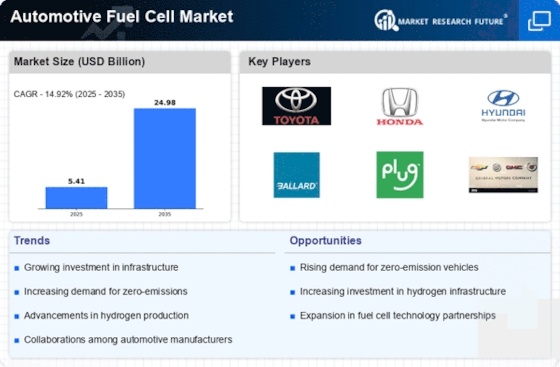
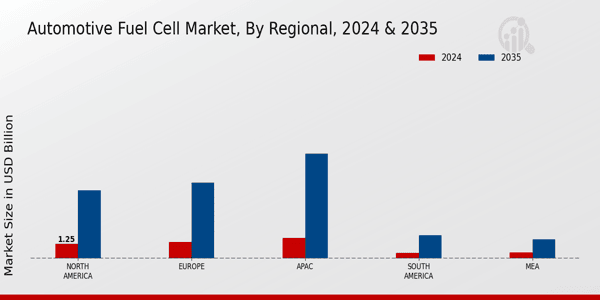
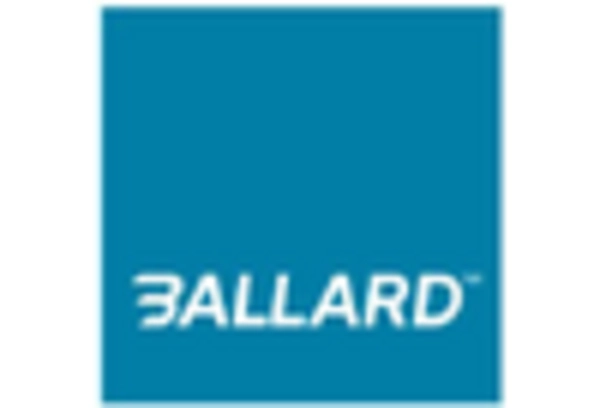
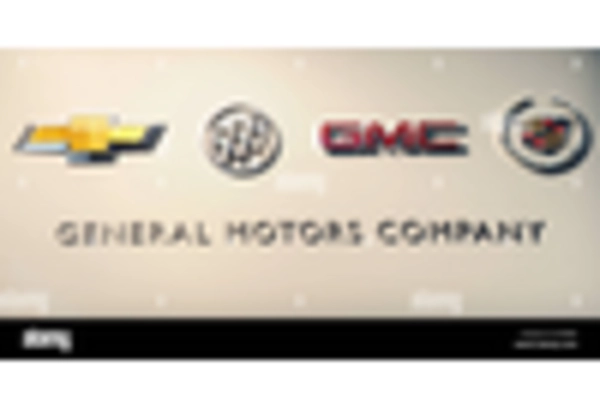

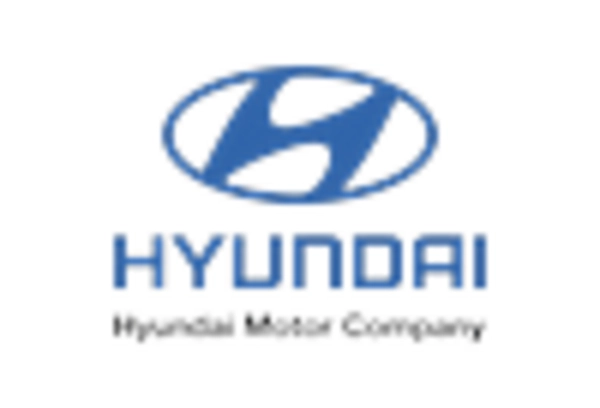
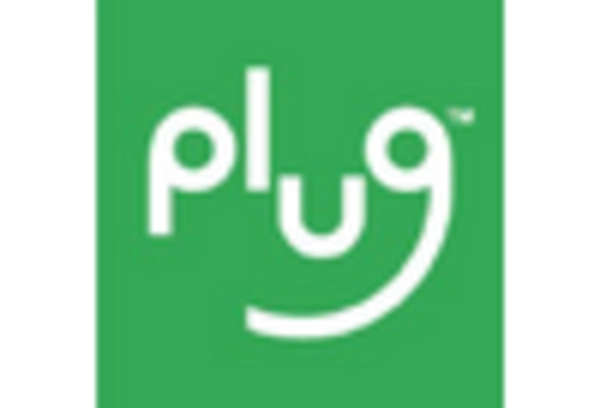


Leave a Comment